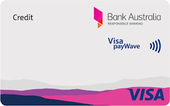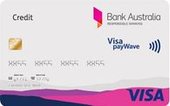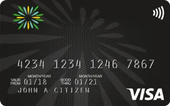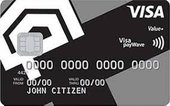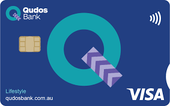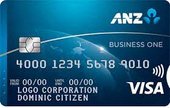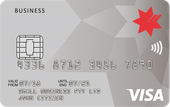The majority of credit cards allow cash advances, giving you easy access to cash. But there are trade-offs to be aware of.
Here's more about the costs and how they work.
What is a cash advance?
A cash advance is when you withdraw cash from your credit card rather than using it to pay for goods and services. In effect, a cash advance can be thought of as a small loan.
Several types of transactions are classified as being a cash advance:
- ATM cash withdrawals, even from an ATM on the same bank's network;
- Buying gift cards or prepaid cards, since these are the equivalent of cash;
- Gambling related transactions, like funding an account on a betting website;
- Money transfers, such as sending money to overseas family;
- Purchasing traveller's cheques or foreign currency;
- Sending money from your credit card to a bank account.
What exactly is classified as a cash advance may vary between banks. If in doubt, check the terms and conditions where it will be defined clearly.
How do credit card cash advances work?
Most people consider withdrawing cash from an ATM as a cash advance, which works like a debit card cash withdrawal.
- Find an ATM, preferably one in your card's network to avoid more fees.
- Insert your credit card and enter your PIN.
- When prompted, select "Withdraw cash" and select how much you want.
- If approved, the ATM will dispense your cash.
Withdrawing cash in this manner will be classified as a cash advance. Interest at the cash advance rate will begin to accrue immediately. Additionally, a cash advance fee will be charged. This might be a flat dollar amount or a percentage of the amount withdrawn.
The same costing applies to other transactions classified as a cash advance.
How much does a credit card cash advance cost?
There are two costs to be aware of: the interest rate and a one-off fee.
- Cash advance rate. This interest rate is not to be confused with the purchase rate, which it is often higher than. The cash advance rate will be applied daily from the date the transaction was posted with no interest-free period.
- Cash advance fee. In addition to interest, a fee will typically be charged. Known as the cash advance fee, this is either a flat dollar amount or a percentage of the amount advanced. Some banks charge the higher of the two, some the lower.
What can cash advances be used for?
There are legitimate reasons why someone might need a cash advance, and they aren't all negative. Used responsibly, cash advances can be convenient, though costly.
- You may have forgotten your debit card and need to pay someone cash.
- You may be running low on money before your next payday.
- You might need to pay a bill but don't have enough to pay it in your bank account.
In summary, cash withdrawn from an ATM can be used for practically anything.
What is the best credit card for cash advances?
To choose the best cash advance credit card for you, compare these features before making your decision.
- Cash advance rate. Usually the interest on cash advances is as much as what's charged for purchases, if not higher. Given that there are no interest-free days on cash advances, the lower the rate, the better.
- Cash advance fee. The majority of cards charge a fee in addition to interest. Look for one that's as low as possible, especially if you think you might use a cash advance regularly.
- What's classified as a cash advance. Check what the bank will classify as a cash advance. Ideally you'll find that what you want to use the card for is classified as a normal purchase.
- Purchase rate. Because cards with very low purchase rates — especially those from credit unions and challenger banks — sometimes have lower cash advance rates.
- Non cash advance fees. Apart from the cash advance fee, is there an annual fee to pay?
Pros and cons
Credit card cash advances might be convenient, but there are important downsides to be aware of.
Pros
- Useful in an emergency. A cash advance can be useful in an emergency or if you've run out of money and know you can quickly pay it off in full.
Cons
- They're expensive. Often the interest charged on cash advances is even higher than what's charged for purchases, especially on cards from the big banks.
- No interest-free period. Cash advance interest is usually charged on a daily basis, starting from the day of the transaction.
Alternative options
If you need money quickly, there are some other options that may be cheaper and easier.
- Set up a credit card instalment plan. Some cards let you convert some of your available credit into cash and repay it in interest-free instalments. Check your card's online banking for what's available. Learn more about credit card instalment plans.
- Pay on demand. Several new services allow you to access your pay in advance of payday. Examples include Beforepay and MyPayNow. These services typically charge a flat dollar amount as their fee instead of interest, so they may be a cheaper alternative to a cash advance.
- Centrelink advance payment. If you are on Centrelink, you may be able to get an advance from them. You'll have to apply though, making it is a less accessible option. More details available on their website.
